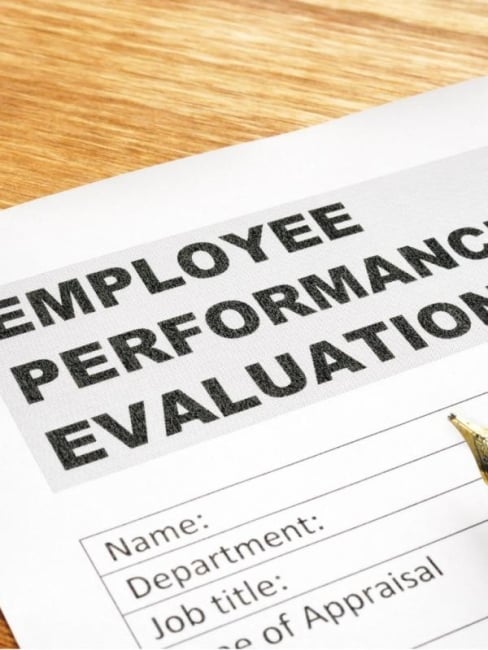You have /5 articles left.
Sign up for a free account or log in.

istock.com/designer 491
What happens when performance appraisals coincide with a global pandemic and rising tensions due to sustained racial injustice? In a time of uncertainty about job security for staff, faculty and administrators, such evaluative processes should be the least of our concerns. Yet not only are appraisals still being conducted, but they also shine a light on vast inequities that exist within the process itself.
In light of recent events, many colleges and universities have issued statements in support of the Black Lives Matter movement. These mere words must be met with action, like changing the inherent biases lurking in performance appraisals. One way to highlight that Black people matter is to revamp a process that measures one’s performance and contributions in order to make it more inclusive. In addition, these review processes should not be conducted during a time when many of us are trying to heal and deal with racial stress, and when humanity must supersede productivity.
During these unprecedented times, staff and administrators have been managing multiple professional and personal roles: supporting students, ensuring that institutions are operational during a crisis, and fulfilling duties as parents, friends, children and grandchildren. Not to mention the internal struggles faced while managing mental health issues triggered by the pandemic and incidents with police brutality. This is the time for colleges and universities to support staff and administrators, as well as students and faculty. This is not the time to evaluate their performance. Instead of fixating solely on productivity, colleges and universities should be concentrating on humanity, now and in the coming months.
The performance appraisal process for many staff in higher education is often narrowly focused and inherently biased. The popular top-down, one-sided approach largely favors upper management and disadvantages those with marginalized identities. Such inefficiencies are further exacerbated during this COVID-19 era, when institutions are forced to make tough decisions about staffing and budget cuts, leaving many people concerned about job security. Not only should these appraisals be postponed in light of the pandemic, but moving forward, the appraisal process must also be significantly improved.
In fact, the appraisal process at many colleges and universities needs an overhaul. Performance appraisals often influence merit-based raises and opportunities for advancement and can even serve as the catalyst for an employee’s termination. These appraisals are sometimes conducted at such infrequent intervals that the feedback provided may blindside employees. And in my dissertation research on Black women staff and administrators’ perceptions of organizational culture at a primarily white institution, many participants indicated that being liked was the most important factor in their advancement rather than their skills. Moreover, they said their managers often did not recognize their contributions. The women cited negative stereotypical images as influencing their perceptions in the workplace.
Social identity theory supports the notion that, in organizations, people have a more favorable bias toward those with similar identities, particularly to those in leadership, who research suggests are most likely to be older white men. The appraisal system often primarily focuses on the perceptions of this primarily white male leadership -- perceptions that are used to determine the value, contributions and opportunities afforded to their direct reports, who are more likely of color. In addition, staff of color can be more harshly criticized in a variety of ways including the performance appraisal, which could be a barrier to ascending to a leadership role. This is an issue even under normal circumstances, but it becomes more pronounced in times of crises when leaders are often given freer rein to make decisions on which person(s) or positions are valuable and worth keeping.
Important Countermeasures
To mitigate bias, many organizations within and outside higher education use countermeasures like 360-degree feedback, where they democratize the appraisal process and incorporate the perspectives of many voices, regardless of title or position in the organizational ladder. Without such feedback, ineffective managers or those that may have unchecked bias are able to make decisions about who gets to stay, receive merit raises and receive opportunities for advancement.
A well-designed 360-degree feedback process would allow others in the office a more accurate and diversified perspective on an employee’s performance to contribute their thoughts. Peers work together on teams, have a similar level of authority and are generally more present to notice what each employee contributes. In addition to colleagues, students may also offer valuable perspectives of a staff member’s performance. Supervisors who may not have such opportunities will operate based on what they hear from third parties, not what is observed firsthand. Offering 360-degree feedback will also allow employees to review their managers, hold managers accountable for taking this part of their role seriously, enact consequences for ineffective managers and offer incentives for effective ones.
The improved appraisal process must be thoughtfully designed by exploring more inclusive and holistic ways of evaluating performance. In the coming months, college and universities may have to make difficult decisions about whom to keep. Such decisions could be based on a managers’ perceptions of which jobs are necessary and whose performance is deemed worthy enough to remain in their positions. Institutions must do what they can to ensure that their employees feel safe during this uncertain time and not only be transparent but also equitable in their treatment and evaluation of employees. This is particularly important for those employees with marginalized identities who face myriad stereotypes or differential treatment, or who lack the social and political connections needed to advance.
While this is only one part of a larger solution, improving performance appraisals could lead to increased job satisfaction and retention among employees, which would not only benefit students but in fact everyone in higher education.








